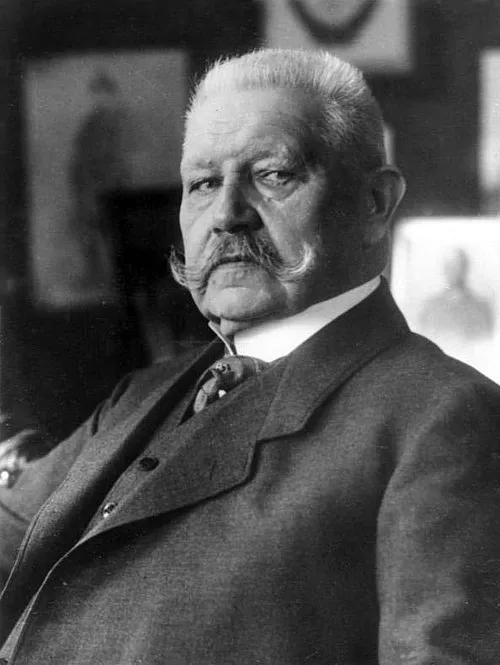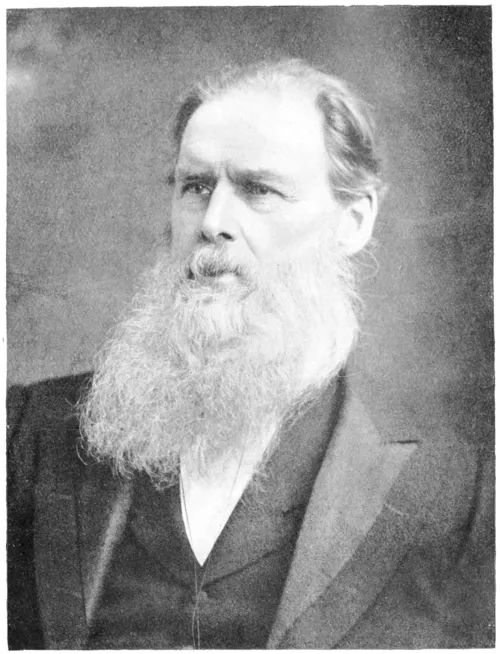
Full Name: Paul von Hindenburg
Birth Year: 1847
Death Year: 1934
Nationality: German
Occupation: Field Marshal and Politician
Presidency: 2nd President of Germany
1847 – Paul von Hindenburg, German field marshal and politician, 2nd President of Germany (d. 1934)
On a cold day in 1847, in the quaint town of Posen, a future military titan and statesman was brought into the world. Paul von Hindenburg, destined to become a towering figure in German history, began life as the son of a Prussian officer. His early years were shaped by an atmosphere thick with military tradition a background that would later influence his character and ambitions.
Despite this solid foundation, Hindenburg's path to greatness was anything but straightforward. In his youth, he faced an uncertain future; many believed he would follow in his father's footsteps without leaving any remarkable mark on history. However, this perception changed dramatically when he joined the Prussian Army at age 19. It was there that Hindenburg began climbing the ranks an ascent fueled by both talent and sheer determination.
The turning point came during World War I when Hindenburg emerged as a national hero. Leading German forces against Russia at the Battle of Tannenberg in 1914, he orchestrated a masterclass in military strategy that left both allies and enemies astonished. The battle's outcome seemed almost miraculous: against overwhelming odds, Hindenburg's tactical genius turned what could have been defeat into a decisive victory for Germany.
As reports of his exploits spread like wildfire across war-torn Europe, so too did public adoration for this new face of German leadership. Ironically, while many thought that victory on the battlefield would guarantee peace at home Hindenburg himself soon found that success often breeds conflict on multiple fronts.
With fame came political clout; leaders sought to align themselves with him as if he were some kind of modern-day mythic hero wielding an invincible sword. Yet perhaps it was not merely military prowess but also his ability to navigate complex political waters that set him apart from contemporaries who faltered under pressure.
In 1925 a time marked by economic strife and social upheaval Hindenburg was elected as Germany’s second president after Friedrich Ebert’s passing. It seemed almost poetic: from humble beginnings to leading one of Europe’s most powerful nations! Many hailed him as a stabilizing force amidst rampant inflation and political turmoil; however, behind those presidential curtains lurked countless challenges brewing just beneath the surface...
The Weimar Republic struggled valiantly against extremist factions the Nazi Party among them but instead of confronting these threats head-on or calling for unity among disparate groups within society...Hindenburg made choices that some historians argue ultimately sealed Germany’s fate.
Perhaps one critical miscalculation stemmed from Hindenburg's infamous decision to appoint Adolf Hitler as Chancellor in January 1933 a move widely viewed today as catastrophic! Who knows what would have happened had he chosen differently? This single act spiraled into calamity: enabling Hitler's rise allowed dark forces within Germany to awaken... unleashing chaos unlike any seen before!
This legacy is laden with tragedy: while initially revered for restoring order post-World War I through various reforms including labor rights initiatives his later years are often overshadowed by association with tyranny and oppression perpetrated under Nazi rule!
Following his death in August 1934 amidst escalating tensions across Europe it became abundantly clear how fragile democratic ideals can be when placed in precarious hands! As we examine historical texts recounting these events today… there lies an eerie resemblance between past authoritarian tendencies emerging worldwide now versus then!
No doubt generations still grapple with questions regarding accountability surrounding figures like Paul von Hindenburg whose actions forever altered history not merely due their immediate effects but because they serve cautionary tales warning us about what happens when power becomes misused...
This year marks over eight decades since such fateful choices led directly towards cataclysmic consequences felt globally thereafter in street interviews conducted recently across Berlin city centers people reflect poignantly upon lessons learned from their predecessors’ mistakes even whilst pondering future possibilities where democracy flourishes anew!
Early Life and Military Career
Hindenburg was born into a noble family, and from an early age, he was trained in military discipline. He joined the Prussian Army at 18 and participated in various campaigns, including the Austro-Prussian War of 1866 and the Franco-Prussian War of 1870-71. His rapid rise through the ranks showcased his capabilities, and by the outbreak of World War I, Hindenburg had already gained considerable military experience.
World War I and the Eastern Front
During World War I, Hindenburg, alongside General Erich Ludendorff, led the German forces to decisive victories in the East, notably at the Battle of Tannenberg in 1914. This battle is significant not only due to its scale but also for Hindenburg's effective tactics, which made him a national hero. The success at Tannenberg allowed the German Empire to shift focus toward the Western Front while keeping the Eastern Front in check.
Political Career and Presidency
Following the defeat of Germany in World War I and the subsequent abdication of Kaiser Wilhelm II in 1918, Hindenburg's fame propelled him into the political spotlight. He served on the German High Command and later as Chief of the Army. In 1925, he was elected as the second President of Germany, a position he held until his death in 1934.
Hindenburg's presidency was characterized by political instability, economic turmoil due to the Great Depression, and the rise of the National Socialist Party. Initially, he opposed Adolf Hitler but eventually appointed him Chancellor in 1933, believing he could control Hitler and stabilize the government.
Later Life and Legacy
Hindenburg passed away on August 2, 1934, in Neudeck, East Prussia . His death occurred at a critical moment as the Nazi regime consolidated power, leading to the eventual dictatorship under Hitler. Hindenburg’s legacy is complex; while he is remembered as a brilliant military leader, his political decisions facilitated the rise of Nazism in Germany.



